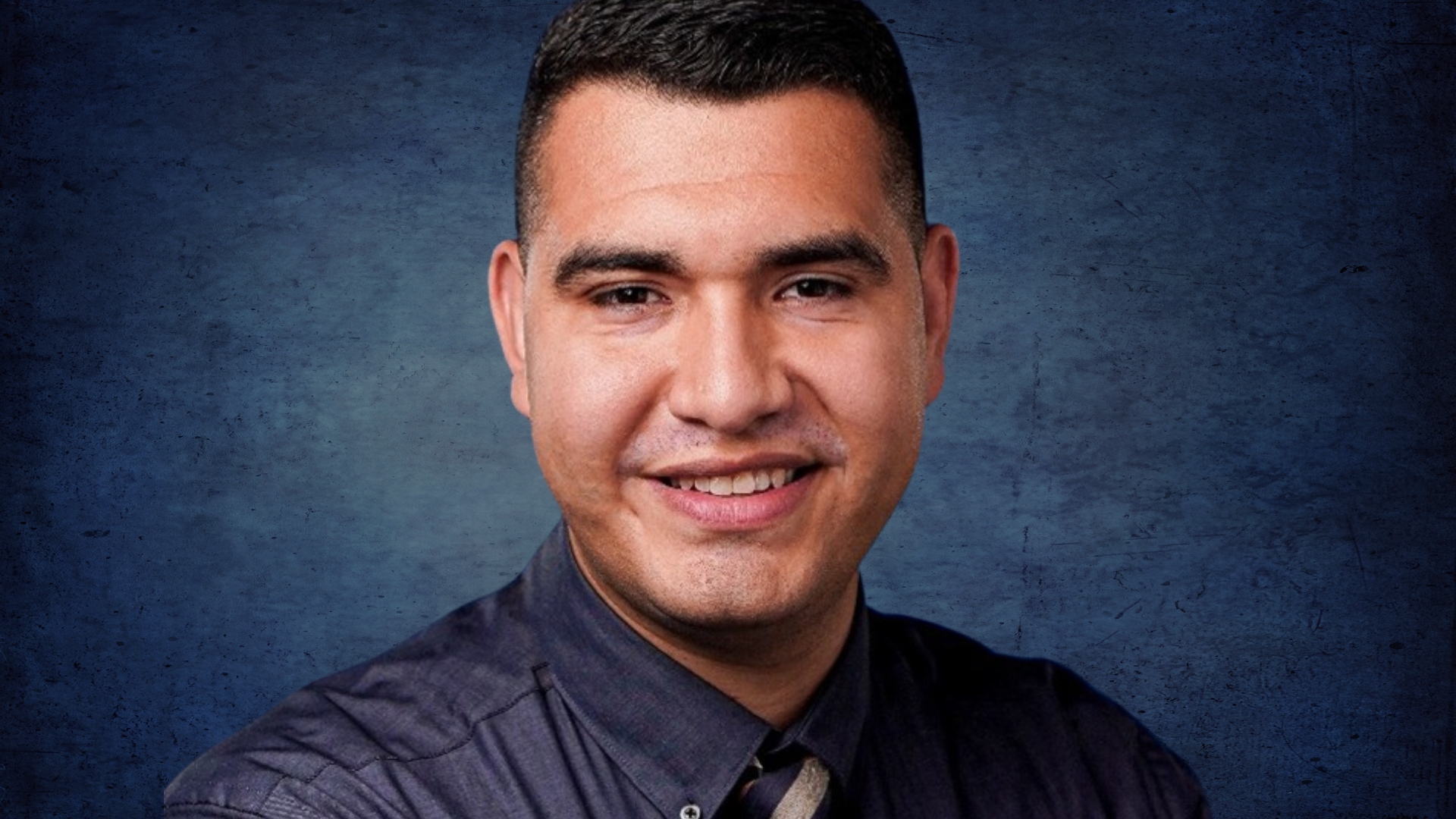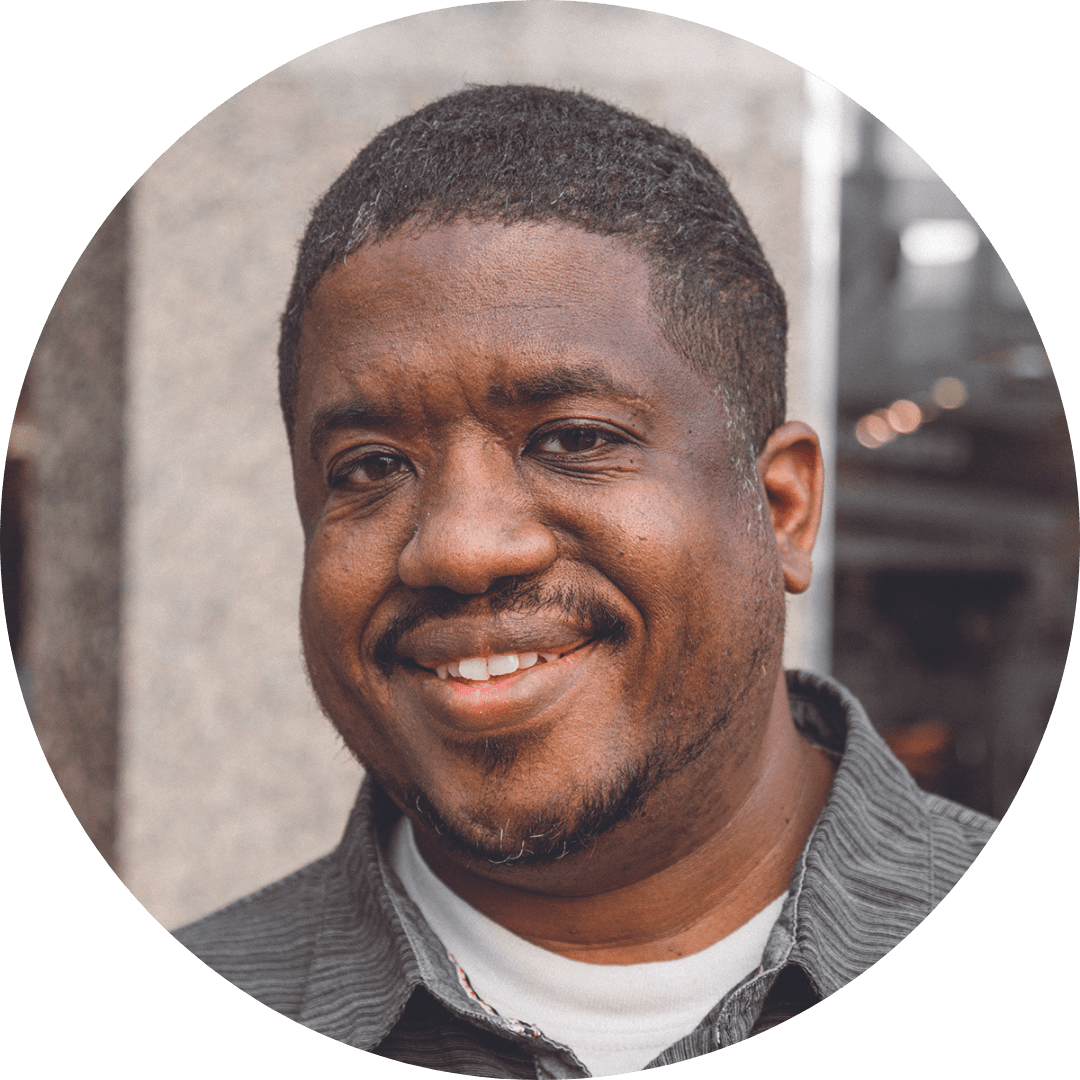Missional storyteller Jelani Greenidge conducted a virtual sit-down with Edgar Torres, the new president of Asociación Latina de la Iglesia del Pacto Evangélico (ALIPE), which links pastors and leaders of Latino congregations through connection, fellowship, and resourcing. Edgar is a veteran of youth ministry and holds a bivocational pastoral license as a member of New Community Covenant Church in the Logan Square neighborhood of Chicago. This conversation has been edited for length and clarity.
So, Edgar, we start with a standard question—how did you first get connected to the Covenant?
I’ve been in the Covenant since I was six years old. My family started attending a Covenant church in the Central Conference. One of the first responsibilities of the late Jerome Nelson when he became superintendent of the Central Conference was to close Iglesia Del Pacto Peniel on the south side of Chicago. Four families at the church, including my mom, said, “No, this is our church.” A few people stepped into the interim roles until our senior pastor, Javier Cardenas, got there. And today, that church is still there.
So that was my home church. That Latino community became my family, that Latino church was everything for me in developing my faith, my formation, and it connected me to the Covenant overall.
But a lot of people are like, “We have a Latino side to the Covenant?” And I’m like, “Yeah, we do.” We are good at talking about global missions and other ministries, but there’s a strong presence of Latino churches in the Covenant.
That’s how I first started, and then I went to North Park University and did all the Covenant stuff.
I see you’re wearing a Covenant Point T-shirt.
Yeah, exactly. I’m one of those rare Latinos who’s done all the Covenant things.
Right there with you, I’m wearing my Unite shirt right now. How did you get involved with ALIPE? Is that something you always wanted to do?
In my role as ALIPE president, one of my biggest responsibilities is to equip, advocate for, and walk alongside our Latino pastors. That’s what happened with me. I heard about this role from Juana Nesta, our previous president. She told me, “I think you’re fit for this role, and there’s a generation gap that needs to be represented. You know how to live in Covenant spaces, and you’re respected within our Latino community.” I heard similar things from some of my mentors as well, so I said OK.
I know I’m a little young compared to the expectations of the other Latino pastors in our community. But when it was time for the vote, they all voted me in, 100%. It was truly affirming to know that our more seasoned pastors and leaders are seeking to give spaces and opportunities for younger generations to lead and to set the future for their churches.
Tell us about some ministry experiences that prepared you for this role.
Serving at a Latino church, basically all my life, serving since I was seven years old, and in the worship team at 12. And you know, Latino and Black cultures are like that.
Oh yeah, no doubt.
I know what it means to serve the culture of our Latino churches, our immigrant communities—what it’s like to serve when the budget’s not there, and how to make it work in order to sustain the congregation. But also, I have experienced the other side, where I did get an education on business strategies and communications, and I developed a whole different mentality that I was able to bring back to my home church on the south side of Chicago.
I had great mentors throughout my life who saw potential in me and gave me opportunities to lead when I was probably too young and didn’t have all the theology completely correct. But they gave me the opportunity to lead anyway.
Have you started to identify any key priorities, initiatives, or a specific direction where you want to see ALIPE going into the future?
Mostly it’s building partnerships. I think it’s really important for us to continue to collaborate. There are relationships that need to be re-established within congregations and in the denomination. And more conferences need to understand the need for representation, especially when language is one of our biggest barriers. In the African American community, the majority speaks English, but in our Spanish-speaking communities, there is still that language barrier. We need to have more paid leaders who speak Spanish, especially in our denomination, to make sure we have representation in all our local, conference, and denominational events.
One of the privileges that I bring is being connected with entities like Covenant Living, where I served as a senior video producer for four years. Covenant Living has great employees, and we have a great work ethic in our community. They have something called the Inspiration Awards, where they recognize Covenant Living employees from across the country. I would hear stories of people who first came to the United States to work at Covenant Living, and it’s 25 years later, and they’re still employed there, but now as directors. At Covenant Living, they really take care of their people, and they do a lot to develop young leaders. I’m evidence of that. The same thing is true at North Park, where I’ve been able to do contract video work. It’s all about developing those collaborative relationships so we can provide more opportunities for our people.
I used to serve on the executive board for Covenant Harbor Camp and Covenant Point Bible Camp here in the Central Conference. And I was always speaking up to try to make it possible for our Latino youth and parents to get connected to camp. So there are connections I’ve had since I was a kid, and now that I’m a young adult, they’re starting to flourish.
I’m glad you brought up camp. At Cascades Camp in Yelm, Washington, they’ve had to really work hard to reach out to our families of color. Because if you don’t grow up going to camp, if camp is not a third- or fourth-generation experience, you may not easily understand the value of it. When you grow up Black in the Pacific Northwest, you’re not just going to drive out into what feels like the middle of nowhere, where you might not have cell coverage. For a lot of families, that feels like a major safety issue. So like you said, it takes a lot of work to build those relationships and forge bonds over time. Now, if someone asks me about Cascades, I can tell them about it because I’ve had firsthand experience with it, and I know the people who run the place. So I’m like, “Bro, good people, the food is bangin’… It’s gonna be great.” Bringing that layer of cultural credibility is huge.
It all goes back to that relational part. Both Covenant Point and Covenant Harbor were completely willing to learn, and they’ve been extremely supportive of our Latino ministries. During the COVID pandemic, they said, “Hey, we have an entire week available for any program you want to do up here.”
If you want to reach our younger generation, you first have to touch the hearts of the parents. They have to eat the food that their kids are going to eat. They have to see where the kids are going to be sleeping.
So we did a family camp, six hours away from Chicago in Iron River, Michigan. Driving there, you see all these Confederate flags and political signs and stuff. When I used to bring my students there and we stopped for gas or snacks, I always made sure I talked to the clerk and would tell them, “Hey, we’re on our way to this Christian camp.” I would tell them about the Covenant just to help make sure my kids were safe and they didn’t see us as a threat. So that’s a cultural reality we had to live with.
During my first year in youth ministry, I was driving to class at North Park, and I was praying, “God, I want you to do something crazy this summer.” That afternoon I received a call saying, “Hey, do you want to take your students to camp?” And I said, “Bro, we don’t do camp. Latinos don’t go to camp.”
And my guy was like, “It’ll be free.”
“Wait, now you’re talking.”
Then they told me it would be six hours away. In that moment, I remembered. God, I asked for something crazy…and here it is. One of the students who went with me that year just became the first Latina program director at Covenant Point.
So now, years later, that’s the whole point. Seeing that affirms everything we did back in 2017, to take a risk to help our Latino communities be heard and get a chance to flow into our Covenant camps. In my new role, I’m hoping to see that pattern replicated across the country.
Any final words of wisdom?
If you’re asking how to engage with the Latino community, I always say start by being present. Reach out and ask questions, and invite collaboration and holistic collaboration. Our community is not looking for handouts. We’re looking for partners who believe in the Latino church. I want to help the Covenant understand that Latino churches are vital to the mission of the Covenant. We call it mission friends, but I call it immigrant friends. If we look at the roots of who the Covenant is, we see that it’s an immigrant church. In this political climate, we cannot let go of our immigrant roots.
Also, we need support. We need funding for future leadership, advocating for representation on boards and in leadership roles, truly seeking equity when it comes to leadership within the denomination, conferences, and local churches.
One of our biggest challenges for Latinos, and probably across the denomination, is understanding the generational gap between the 1.5 immigrants and the 2.0 generation. One of the things ALIPE has done really well is develop young leaders. We have a program called 20 for 20 in the Pacific Southwest Conference that was started by Juana and Fil Nesta. It’s about implanting the leadership seed in young people around the age of 20, with the hope that when they’re in their 30s, they can truly lead in their context and hopefully in the denomination as a whole. We’re really pressing heavily on their development, creating a pipeline for Latino young adults to lead. We might not have it all together, but trust is crucial for the development of future generations.














